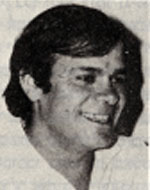Uri, son of Perla Vida and Ezra, was born on May 10, 1938 in Sofia, Bulgaria, and immigrated to Israel with his family in 1949. He attended elementary school in Sofia and the kibbutz elementary school During the war years Uri passed through a small village in Bulgaria, and after his family immigrated to Israel, he was brought to the immigrants’ camp in Pardes Hannah, shortly after his father died and Uri was sent to Kibbutz Mishmar Haemek. She immediately became involved with the children’s society and was very active in the educational institution, and was a member of the Hashomer Hatzair youth movement. He was a boy who played volleyball, basketball and soccer, and was able to connect with people from different backgrounds and ages, He was always dedicated to helping others and gained many friends, loved children, and was very devoted to the youth he had treated before he was drafted into the army for a year in the north of Tel Aviv. . After basic training he underwent a parachuting course and participated in Operation Kadesh. After completing his commanding officer course and infantry officer course, he was posted as a platoon commander in the Paratroopers Brigade. When he completed his regular service, he was promoted to lieutenant colonel and assigned to reserve duty as a platoon commander in another regiment and later as anti-tank commander On his release certificate he was noted that he was a good and dedicated officer and acceptable to his men and commanders.Then after completing his regular service, After a period of time, he returned to Sharett at the request of Kibbutz Artzi as commander of the Kerem Shalom outpost and as commander of a company of seven Nahal Brigade divisions in the farms In the south, where there were Nahal units of the “Hashomer Hatzair.” In his position as commander of farms, Uri did many for the settlement and the seeds and his subordinates remember But as a social guide, a friend in times of trouble and a man of values, than as a commanding officer, but despite his strict military discipline, his commanders sometimes thought that his attitude toward his subordinates was too convenient, and that in doing so he emphasized too much the ideological side. After completing two years of military service in 1963, he married Leah, who served as his clerk when he was commander of the Kerem Shalom outpost. Later, he went with his wife to Bolivia as an agricultural instructor in the Nahal military delegation, where he spent two years as the commander of an agricultural farm in a remote Indian village in the jungle and succeeded in fulfilling his duties, to the satisfaction of both the Bolsheviks and the Israelis, And during his annual vacation he even organized a youth camp with great success, before returning to Israel, Uri and his wife toured throughout South America and met wherever they were. With Jewish youth and lecturing them about Israel and the kibbutz Uri alien from Bolivia finished the permanent service and was assigned to serve reserve company commander in the paratroopers. After a while, he was appointed commander of another battalion and took part in a training course for armored corps officers, serving as commander of the armored corps.More than that. In the last few years, he served as a senior commander in the Paratroopers Brigade and was promoted to the rank of Major, returning to Mishmar HaEmek, where he began to work in the beef cattle sector and a year later he was the coordinator of the branch. And in 1971 he went to South America for two months to try to sell the industrial products of Mishmar Ha’emek, and in 1972 his younger brother, who was educated in an institution In Mishmar HaEmek in the course of fulfilling his duties, and this severely harmed Uri when the Yom Kippur War broke out Uri was immediately called to the battalion and participated in battles in the southern sector of the Suez Canal, fought to liberate the stronghold of Budapest and crossed the canal to its western side On October 24, 1973, in the battle for the city of Suez, Uri entered the area Despite the fact that his job did not require this, he passed by an Israeli tank that was hit, and in order to rescue the crew, he got out of his jeep, despite the intense fire that hit him and even though the tank might explode at any moment. When he approached the tank, he was hit and killed, showing “courage, coolness and devotion to the mission” – in the words of the honorable citation given him by the chief of staff after they fell. He was brought to eternal rest in the cemetery in Mishmar Ha’emek. He left behind a wife and son, mother, brother and sister. In a letter of condolence to the bereaved family, his commander wrote: “Uri was not just a man and a commander in the battalion, but an institution that took on the hard job of a company commander and managed to fill it with extraordinary heroism. He managed to establish an example company, for which the personal example was the guiding principle. “
